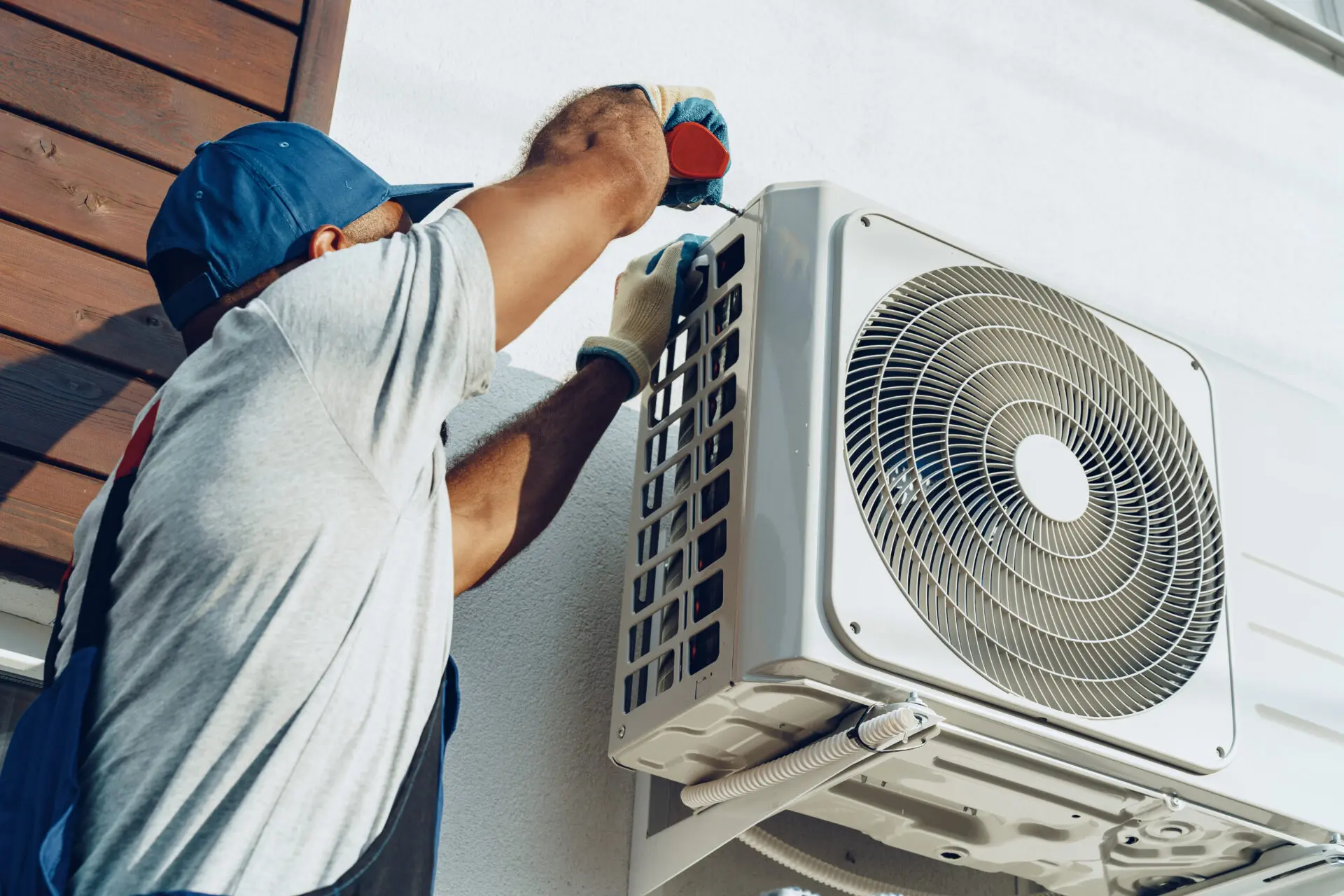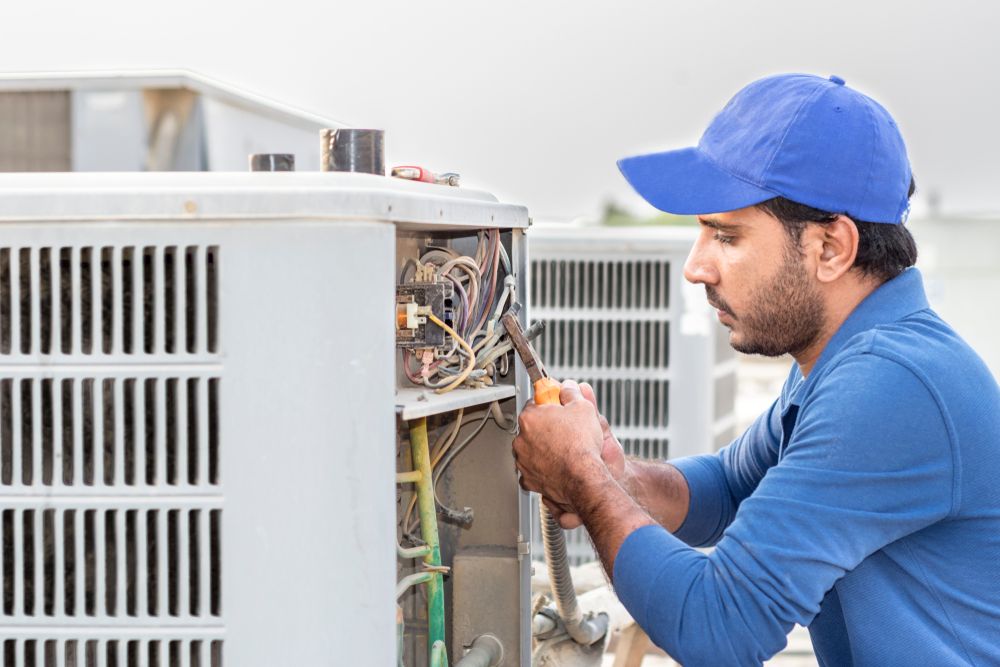Reliable AC Repair Port Aransas: Top-Notch Solution Assured
Reliable AC Repair Port Aransas: Top-Notch Solution Assured
Blog Article
The Ultimate Overview to Troubleshooting Common AC Repair Issues in Your Family
In the middle of a boiling summertime, the sudden malfunction of your family's air conditioning system can be a difficult circumstance. The hum of the Air conditioner system has actually been replaced by an unfamiliar noise, or probably the cool breeze that when distributed with your home has now decreased to a weak drip.
Typical Air Conditioning Noises and Their Causes
What are the common noises that can show underlying issues in an a/c system? Paying interest to the noises it generates can be vital when it comes to detecting issues with an air conditioning system. One typical sound that home owners may experience is a squealing or shrilling noise. This high-pitched sound commonly shows problems with the follower belt or electric motor bearings, signifying that immediate interest is needed to stop additional damage.
One more noise to be wary of is a knocking or clanking noise - AC Repair Port Aransas. This can be an indication of loosened or busted parts within the system, such as a linking pole or crankshaft. Overlooking these noises can cause more serious malfunctions and expensive repairs down the line
Additionally, a humming or humming sound coming from the a/c device can point towards electric issues, such as a damaged capacitor or contactor. It is important to resolve these concerns immediately to ensure the security and performance of the system. By being attentive to these common sounds, homeowners can catch prospective troubles early and stay clear of comprehensive air conditioning repair services.
Weak Air Movement Solutions
Addressing inadequate air movement in an air conditioning system calls for a methodical approach to determine and fix the underlying reasons effectively. One common reason for weak air movement is a filthy or clogged air filter.
If the follower motor is malfunctioning or not running at full ability, it can result in weak air flow. Inspecting and perhaps repairing or changing the fan electric motor can help bring back proper air flow in the system.
Sometimes, the problem might lie with the a/c unit itself, such as a malfunctioning blower motor or a cooling agent leak. AC Repair Port Aransas. Consulting a specialist cooling and heating service technician can aid identify and resolve these much more intricate issues to bring back optimal air flow in your house
Thermostat Troubleshooting Tips
To ensure efficient procedure of your air conditioning system, it is crucial to repair prospective concerns with the thermostat for ideal performance. When encountering troubles with your A/c unit, the thermostat is a typical offender that can disrupt the air conditioning process. If the air conditioner is not turning on or is not cooling successfully, the thermostat could require new batteries.
Cooling Agent Leaks Discovery
Spotting refrigerant leaks in your air conditioning system is vital for keeping optimal efficiency and performance. One usual indicator of a refrigerant leak is when your AC is blowing cozy air rather of chilly. Routine upkeep checks and timely repairs can help extend the lifespan of your air conditioning unit and keep it running efficiently throughout warm weather condition.
Condenser System Maintenance

In enhancement to maintaining the area around the condenser unit tidy, it is essential to check and clean the fins on the system. Over time, these fins can gather dirt and particles, minimizing the device's capacity to dissipate warm effectively. You can make use of a soft brush or a vacuum with a soft brush add-on to delicately clean up the fins and restore appropriate airflow.
Furthermore, inspect the condenser system's fan to guarantee it is functioning properly. The fan plays a key function in the heat transfer process, so any kind of concerns with the follower can impact the system's total effectiveness. Regularly inspecting and keeping the condenser unit will not just prolong its lifespan yet also assist protect against costly repair services in the future.

Final Thought
To conclude, fixing common air conditioner fixing problems in your house requires determining the source of common issues such as strange noises, weak air movement, faulty thermostats, refrigerant leaks, and condenser device maintenance. By attending to these issues quickly and properly, you can ensure your air conditioning system works successfully and effectively, supplying cool and comfortable air for your home. Regular maintenance and prompt fixings are crucial for lengthening the life-span of your AC unit.
Additionally, a humming or buzzing noise pop over here coming from the air conditioning unit can aim in the direction of electric problems, such you could check here as a malfunctioning capacitor or contactor. Routine maintenance checks and prompt repair work can help prolong the life-span of your air conditioning device and maintain it running smoothly during hot weather condition.

Report this page